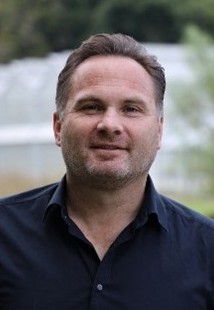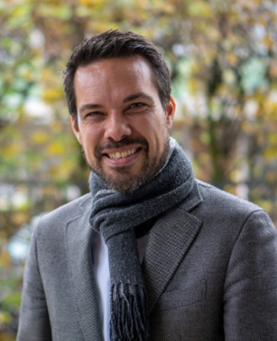ICA Community of Practice for Bioeconomy Education (ICA-CoP Bio-Edu) 2025
Learning Communities for the transformation to the bioeconomy: innovation by dialogue between partners - Webinar No1
At the EU level it is recognised that to support the ongoing transformations to the bioeconomy it is necessary to build successful interchanges between universities, research institutes, industry, policy makers and civil society at different organisational levels, from local, to national, regional and the EU. Bringing together such functional bodies under the umbrella heading of "learning community" can facilitate such interchange and lead to successful transformations for the bioeconomy.
The key objective of the ICA-CoP Bio-Edu series of webinars and workshop in 2025 is to explore concepts of how to initiate and build successful learning communities to address the real-world problems in executing successful transformations towards the development of the bioeconomy. A learning community will have:
- Identified the need for a shared vision on trans-functional stakeholder collaborations (with co-leadership) to address a clearly defined transformational goal(s)
- stakeholder representatives from two or more of the following functional groups: government, industry, knowledge providers, civil society, and at least a strong connection to the other groups
- clear roles identified for each stakeholder in addressing the goal(s).
The series of Webinars will focus on the impact of existing learning communities at different organisational levels, from local to EU level. The Webinars, as case studies, will lead into a face to face Workshop to be held on 20 and 21 November 2025 focusing on how to create engaged learning communities that have the goal of successfully stimulating transformations to the bioeconomy. See the full programme of all the Webinars and Workshop here
Webinar No1: Two Case Studies of Learning Communities at a local level (a region within one country)
To be held on Monday 19 May from 13.00 to 14.00 CET
Presentation 1: Dialogue, learning and engagement to shape the regional transformation: Insights from BioökonomieREVIER
Presenter: Christian Klar, Head of Coordination Centre BioökonomieREVIER, Forschungszentrum Jülich GmbH, Jülich, Germany
Abstract: BioökonomieREVIER is a transformation initiative coordinated by Forschungszentrum Jülich that aims to develop the Rhenish mining region into a model region for the bioeconomy. Its goals include accelerating innovation, creating climate-neutral and circular value chains, strengthening regional value creation, and supporting structural change through knowledge transfer and capacity building. The initiative connects regional stakeholders and resources—from industry and agriculture to municipalities and civil society—to drive sustainable transformation. By offering practical, scalable solutions, it fosters job creation and strengthens the regional economy.
Short Bio: Dr C hristian Klar is heading the transformation initiative BioökonomieREVIER, coordinating regional bioeconomy initiatives and fostering the transformation of the Rhenish lignite mining region into a bioeconomy model region. Dr Klar's background as a geographer provides a strong foundation for his role in coordinating regional transition efforts and equips him with the spatial, environmental, and interdisciplinary skills necessary to successfully coordinate the complex process of regional transition towards a sustainable bioeconomy.
hristian Klar is heading the transformation initiative BioökonomieREVIER, coordinating regional bioeconomy initiatives and fostering the transformation of the Rhenish lignite mining region into a bioeconomy model region. Dr Klar's background as a geographer provides a strong foundation for his role in coordinating regional transition efforts and equips him with the spatial, environmental, and interdisciplinary skills necessary to successfully coordinate the complex process of regional transition towards a sustainable bioeconomy.
Presentation 2: Biobased materials in the practice of everyday people: How to sustainably insulate a Home? An example for a learning community from the Urban Living Lab Breda
Presenter Raymond Sparreboom, Academy for Technology and Innovation, Avans University of Applied Sciences, The Netherlands
Abstract: The Urban Living Lab Breda contributes to the broad prosperity of the city of Breda and its surrounding region. Its guiding principle is “the city as a learning and development environment,” where learning, experimenting, and innovating take place within the everyday reality of its citizens. The well-being of the city’s citizens is at the heart of its work. The Urban Living Lab Breda operates along three key program lines to help shape the future of the city and region:
1. A digital and human-centred city
2. A sustainable, just, and healthy society
3. Impact entrepreneurship as the new normal
 Short Bio: Raymond Sparreboom (MSc) works at the Academy for Technology and Innovation at Avans University of Applied Sciences and is a researcher at the Centre of Expertise ‘Perspective in Health’. His research focuses on the co-design of human-centred AI within the healthcare and welfare domain. One example is a project exploring how AI-driven technology for cognitive stimulation, can be co-developed with people in the early stages of dementia, with the aim of supporting independent and dignified living at home for as long as possible. Raymond is also founder and program leader of Urban Living Lab Breda —a city-wide strategic partnership between higher education (both education and research), vocational education, and the municipality of Breda. With a background in Communication Science and Civil Engineering, Raymond has previously focused on the social acceptance of technology.
Short Bio: Raymond Sparreboom (MSc) works at the Academy for Technology and Innovation at Avans University of Applied Sciences and is a researcher at the Centre of Expertise ‘Perspective in Health’. His research focuses on the co-design of human-centred AI within the healthcare and welfare domain. One example is a project exploring how AI-driven technology for cognitive stimulation, can be co-developed with people in the early stages of dementia, with the aim of supporting independent and dignified living at home for as long as possible. Raymond is also founder and program leader of Urban Living Lab Breda —a city-wide strategic partnership between higher education (both education and research), vocational education, and the municipality of Breda. With a background in Communication Science and Civil Engineering, Raymond has previously focused on the social acceptance of technology.
